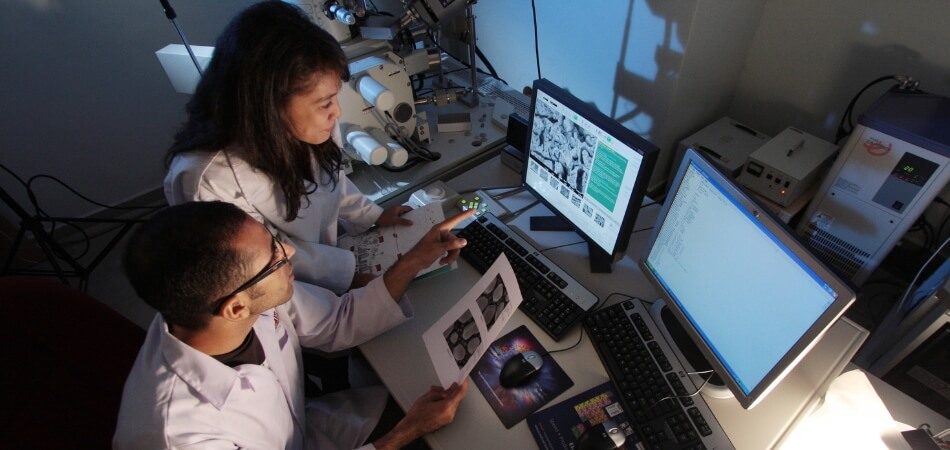Academics and researchers must discover the appropriate platforms for presenting their work, learning from colleagues, and broadening their scholarly perspectives. Among the vast sea of gatherings and events, you might wonder, how to find scientific conferences.
To find a scientific conference, utilize online databases, academic networks, and social media while considering your research field, location, and objectives. Network with peers and explore reputable conference listings for relevant events.
Here, we’ll explore these methods in detail, providing valuable insights into uncovering the ideal scientific conferences. By following these strategies, you can unlock opportunities to advance your research and propel your career to greater success.
What is the Scientific Conference?
Scientific conferences are essential platforms in the academic and research realm. They promote dialogue, stimulate innovation, and nurture professional growth. Offering insights into their significance, structure, and benefits can illuminate their value in modern science.

These events serve as a hub for academic activity. They are designed for the presentation of new research findings, fostering discussion, and critiquing novel theories. Scientific conferences not only offer a venue for sharing knowledge but also stimulate intellectual debate, challenging existing perspectives and paradigms.
Apart from information exchange, international engineering and applied science conferences provide networking opportunities. Attendees can engage with their peers, forge upcoming collaborations, and explore potential partnerships. This interpersonal dimension amplifies the growth of both individual researchers and the broader scientific community, especially at events like scientific conferences in Canada 2024.
In addition, these gatherings often feature training sessions, workshops, and seminars. These components augment attendees’ skill sets, familiarize them with cutting-edge tools, and introduce them to the latest methodologies. Ultimately, scientific conferences are more than just meetings – they are catalysts for advancement in science.
Various Types of Scientific Conferences
Scientific conferences come in various formats, each designed to a unique purpose and audience. They’re designed to foster knowledge dissemination, collaboration, and advancement. Navigating through these types can help researchers find the most suitable platform for their work.
National Conferences
Held within a single country, national conferences focus on regional research developments and challenges. These events draw participants primarily from that country, promoting local collaboration. They often reflect national policies, priorities, and research directions.
International Conferences
Spanning borders, international conferences can be defined as a hub where experts from around the world gather. They highlight global research trends and foster international cooperation. The diverse participant pool brings a wide array of perspectives and enriching discussions.
Symposia
Typically narrower in scope, symposia target specific topics or issues. Scholars deeply delve into specialized discussions, sharing intricate details. The goal is intensive dialogue, often leading to comprehensive understanding and solutions.
Workshops
Focusing on skill development, workshops offer hands-on experience. They provide training on new techniques, tools, or methodologies. Attendees actively participate, ensuring practical understanding and competence building.
Roundtable Conferences
Facilitating open discussion, roundtables gather a small number of experts. The informal setting encourages spontaneous, in-depth conversations. Topics are usually pre-defined, ensuring targeted, productive discourse.
Poster Sessions
Often part of larger conferences, poster sessions allow visual presentation of research. The process of presenting the posters at a conference can depend on the presenter’s aim and style. Researchers display summaries of their work on posters, inviting interactive feedback. It’s an effective way to disseminate findings while engaging in direct conversations.
The diverse types of scientific conferences cater to varied needs, from intensive skill-building to broad knowledge sharing. Identifying the right format can optimize a researcher’s experience, ensuring they benefit maximally from these academic gatherings.
How to Find Scientific Conferences?
In the academic world, knowing where to present or gather new insights is crucial. Navigating “how to find scientific conferences?” can boost one’s academic journey. Here’s a breakdown to simplify the quest.
Online Databases
Several online databases specifically list upcoming scientific conferences. Websites like Conference Alerts or Academia.edu are reliable resources. By inputting desired criteria, you can find desired results. They provide detailed event information, facilitating informed decisions.
Academic Networks
Your institution or affiliated academic organizations often have information channels. They regularly circulate details about relevant events and gatherings. Leveraging these internal networks can offer firsthand conference insights, making finding an appropriate scientific conference easier. Also, consider joining professional organizations related to your field.
Social Media Platforms
Platforms like Twitter or LinkedIn have specialized groups and hashtags. Researchers often share conference announcements or call for papers. Keeping an active social media presence can open doors to unexpected opportunities. Plus, networking online might lead to collaboration prospects.
Journals and Publications
Renowned journals occasionally promote or sponsor scientific conferences. Checking the advertisements or announcements in these journals can be fruitful. They might also provide special publication opportunities for conference attendees. This method combines knowledge updates with conference discovery.
Peer Recommendations
Sometimes, the best leads come through word of mouth. Discuss with colleagues, mentors, or peers about conferences they’ve attended. Their experiences can offer insights into the conference’s quality and relevance. Networking ensures a flow of firsthand, trustworthy information.
University Bulletin Boards
Never underestimate the traditional approach. University departments often post conference flyers on bulletin boards. Physical boards or digital mailing lists both are effective. These are especially useful for local or niche events.
Conference Organizers
If you’ve attended a conference before, stay in touch with the organizers. They can inform you about subsequent events or recommend similar ones. Building a rapport with them might also fetch you exclusive invites. It’s a symbiotic relationship that can be beneficial.
In sum, myriad avenues can guide you in finding the perfect scientific conference. Diversifying your search methods ensures you don’t miss out on valuable opportunities. With the right tools and strategies, you’ll be well-equipped to locate conferences that align with your research interests and goals.
Benefits of Attending the Scientific Conference
Scientific conferences are more than just academic events. They offer researchers an array of benefits that extend beyond mere knowledge exchange. Delving into the advantages can highlight their significance in a scholar’s journey.
- Knowledge Dissemination: Conferences provide a platform for presenting research. This allows for immediate feedback and improvement suggestions. It helps researchers refine their findings effectively.
- Networking Opportunities: Interacting with peers can lead to collaborations. Establishing connections might open doors to future projects. A broadened network often equates to developed opportunities.
- Skill Development: Many conferences offer workshops or training sessions. These are designed to introduce or refine specific skills. Attendees leave with expanded competencies and knowledge.
- Exposure to Latest Trends: Conferences gather experts discussing recent advancements. This ensures attendees stay updated on the latest trends. It’s vital for staying relevant in one’s field.
- Constructive Criticism: Presenting research offers feedback from diverse experts. This constructive criticism can be invaluable. It ensures a well-rounded, robust research outcome.
- Inspiration and Motivation: Witnessing groundbreaking research can inspire. It motivates attendees to push boundaries in their work. Such environments invigorate and drive innovation.
- Collaborative Ventures: Discussions can lead to potential collaborations. Combining strengths with another researcher can be beneficial. These ventures can lead to impactful research outcomes.
- Awareness of Tools and Resources: Exhibitions often accompany conferences. They introduce attendees to the latest tools or resources. This can aid in improving research methodology.
- Academic Recognition: Presenting at renowned conferences improves one’s academic profile. It establishes the researcher as an expert in their domain. This recognition can lead to numerous professional opportunities.
- Personal Growth: Beyond academic benefits, conferences offer personal growth. They teach adaptability, and public speaking, and improve interpersonal skills. Engaging with diverse attendees broadens perspectives.
Attending a scientific conference can be a transformative experience. The expense of attending a scientific conference can be high, due to various conditional reasons. It not only boosts one’s academic journey but also paves the way for holistic personal and professional development. The myriad benefits make them indispensable for researchers globally.
Tips for Choosing the Right Scientific Conference
It is critical to select the right scientific conference for researchers to maximize their opportunities for networking, learning, and career advancement. Here are valuable tips to help you make an informed choice:
Relevance to Research
To begin with, assess the conference’s thematic focus. Ensure it aligns with your research area and interests. The more relevant, the more beneficial the experience. Topics and discussions should resonate with your work.
Conference Reputation
Research past editions of the conference. Gauge its credibility and impact on the scientific community. Renowned conferences offer better networking opportunities and learning experiences. Quality often correlates with the event’s reputation.
Speaker and Attendee Profiles
Inspect the list of keynote speakers and attendees. Recognized experts in attendance indicate the event’s significance. Networking with these individuals can be invaluable. Engage with peers who’ve previously attended for insights. You might also want to ask them for outfit ideas for a scientific conference, as appropriate attire can enhance your confidence.
Event Format
Different conferences have varied formats – workshops, panel discussions, or poster sessions. Determine which format aligns with your learning preference. Engaging formats improve comprehension and retention. The structure should cater to your objectives.
Budget and Location
Factor in the conference’s location and associated costs. Some might offer scholarships or financial aid. Weigh the benefits against the expenditure. Ensuring affordability prevents undue financial strain.
Feedback and Reviews
Seek feedback from peers who’ve attended before. Their experiences can offer valuable insights. Reviews provide a glimpse into the conference’s strengths and weaknesses. Such firsthand accounts aid informed decision-making.
Choosing the right scientific conference requires careful evaluation. Considering these aspects ensures you invest time and resources wisely. The right choice can significantly augment your academic and professional journey, making the effort worthwhile.
Frequently Asked Questions
Are scientific conferences worth attending?
Yes, scientific conferences are worth attending. They provide valuable networking opportunities, allow you to learn from experts, and keep you updated on the latest research and developments in your field. Engaging with peers can spark new ideas and collaborations.
How can I find scientific conferences in my field?
To find scientific conferences in your field, start by exploring academic journals, professional organizations, and university websites. Online platforms like Conference Alerts and social media groups dedicated to your discipline can also provide valuable information about upcoming events.
Can I attend scientific conferences virtually?
Yes, many scientific conferences now offer virtual attendance options. This allows you to participate in presentations and discussions from anywhere in the world. Virtual formats can make it easier for more people to engage with the latest research and connect with others.
How early should I register for a scientific conference?
It’s best to register for a scientific conference as early as possible. Early registration often offers discounted rates and ensures you secure your spot, especially for popular events. Additionally, early registration gives you time to plan your travel and accommodations.
Do I need to present at a conference to attend?
No, you don’t need to be present at a conference to attend. Many conferences welcome attendees who simply wish to learn and network. However, presenting your work can significantly increase your visibility and create valuable connections with others in your field.
Bottom Line
Finding the right science conference can be a challenge. But the answer “How to find scientific conferences?” is simpler than it sounds. It’s like matching a puzzle piece, finding where your work fits best, and where you can learn the most.
There are many types of conferences out there. Some are big and cover many topics, while others are smaller and focus on specific areas. Think about what you want – do you want a big crowd or a smaller group? Do you want to stay local or go international? Picking the right type is key to getting the most out of it.
In short, picking the right conference is a big step in any researcher’s journey. It’s not just about sharing what you know but also about learning from others. With some careful thought and planning, you can find the perfect place to grow and share in the world of science.







